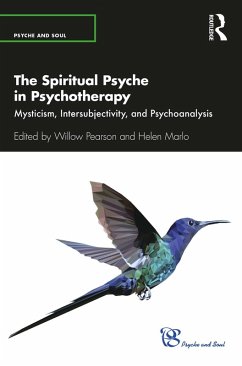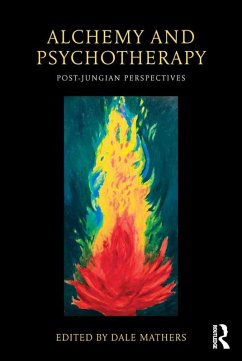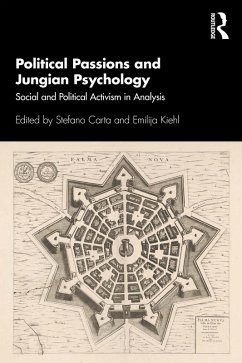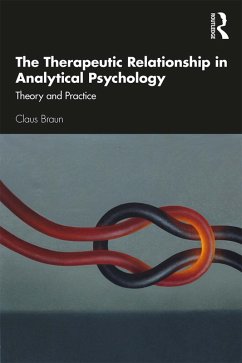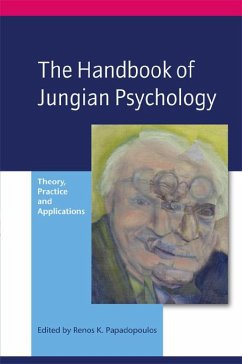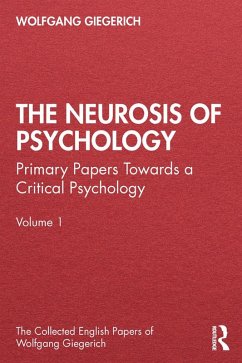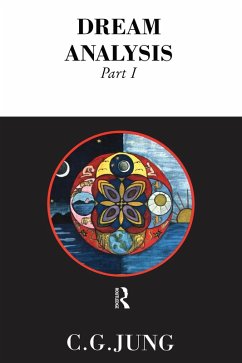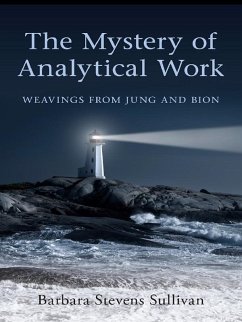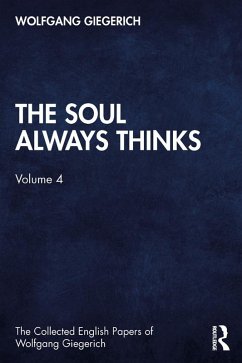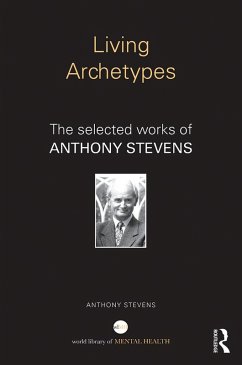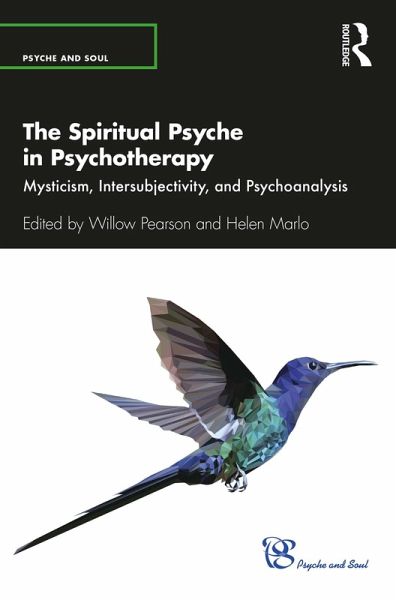
The Spiritual Psyche in Psychotherapy (eBook, ePUB)
Mysticism, Intersubjectivity, and Psychoanalysis
Redaktion: Pearson, Willow; Marlo, Helen
Versandkostenfrei!
Sofort per Download lieferbar
35,95 €
inkl. MwSt.
Weitere Ausgaben:

PAYBACK Punkte
18 °P sammeln!
This book examines the interaction of spiritual and psychoanalytic lineages with psychotherapy in everyday practice. Written by a team of seasoned clinicians and illustrated through clinical vignettes, chapters explore topics pertaining to the mystical dimensions of psychological and spiritual life and how it may be integrated into clinical practice.Topics discussed include dreams, dissociation, creativity, therapeutic relationship, free association, transcendence, poetry, paradox, doubleness, loss, death, grief, mystery, embodiment and soul. The authors, clinicians with decades of experience ...
This book examines the interaction of spiritual and psychoanalytic lineages with psychotherapy in everyday practice. Written by a team of seasoned clinicians and illustrated through clinical vignettes, chapters explore topics pertaining to the mystical dimensions of psychological and spiritual life and how it may be integrated into clinical practice.
Topics discussed include dreams, dissociation, creativity, therapeutic relationship, free association, transcendence, poetry, paradox, doubleness, loss, death, grief, mystery, embodiment and soul. The authors, clinicians with decades of experience in psychotherapy, psychoanalysis and spiritual practice, draw from their deep engagement with spirituality and psychoanalysis, focusing on a particular theme and its application to clinical work that is supported by the generative conversation among these lineages. At once applied and theoretical, this book weaves insights from the heart of Vajrayana Buddhism, Zen Buddhism, Christianity, Catholicism, Ecumenicism, Integral Spirituality, Judaism, Kabbalah, Non-violence, Sufism and Vedanta. They are in conversation with psychoanalytic perspectives including Jungian, Post-Jungian, Winnicottian, Bionian, Post-Bionian and Relational.
A felt sense of the spiritual psyche in clinical practice emerges from this conversation among spiritual and psychoanalytic lineages, beckoning clinicians ever further on the path of spiritually rooted, psychodynamic practice.
Topics discussed include dreams, dissociation, creativity, therapeutic relationship, free association, transcendence, poetry, paradox, doubleness, loss, death, grief, mystery, embodiment and soul. The authors, clinicians with decades of experience in psychotherapy, psychoanalysis and spiritual practice, draw from their deep engagement with spirituality and psychoanalysis, focusing on a particular theme and its application to clinical work that is supported by the generative conversation among these lineages. At once applied and theoretical, this book weaves insights from the heart of Vajrayana Buddhism, Zen Buddhism, Christianity, Catholicism, Ecumenicism, Integral Spirituality, Judaism, Kabbalah, Non-violence, Sufism and Vedanta. They are in conversation with psychoanalytic perspectives including Jungian, Post-Jungian, Winnicottian, Bionian, Post-Bionian and Relational.
A felt sense of the spiritual psyche in clinical practice emerges from this conversation among spiritual and psychoanalytic lineages, beckoning clinicians ever further on the path of spiritually rooted, psychodynamic practice.
Dieser Download kann aus rechtlichen Gründen nur mit Rechnungsadresse in A, B, BG, CY, CZ, D, DK, EW, E, FIN, F, GR, HR, H, IRL, I, LT, L, LR, M, NL, PL, P, R, S, SLO, SK ausgeliefert werden.




